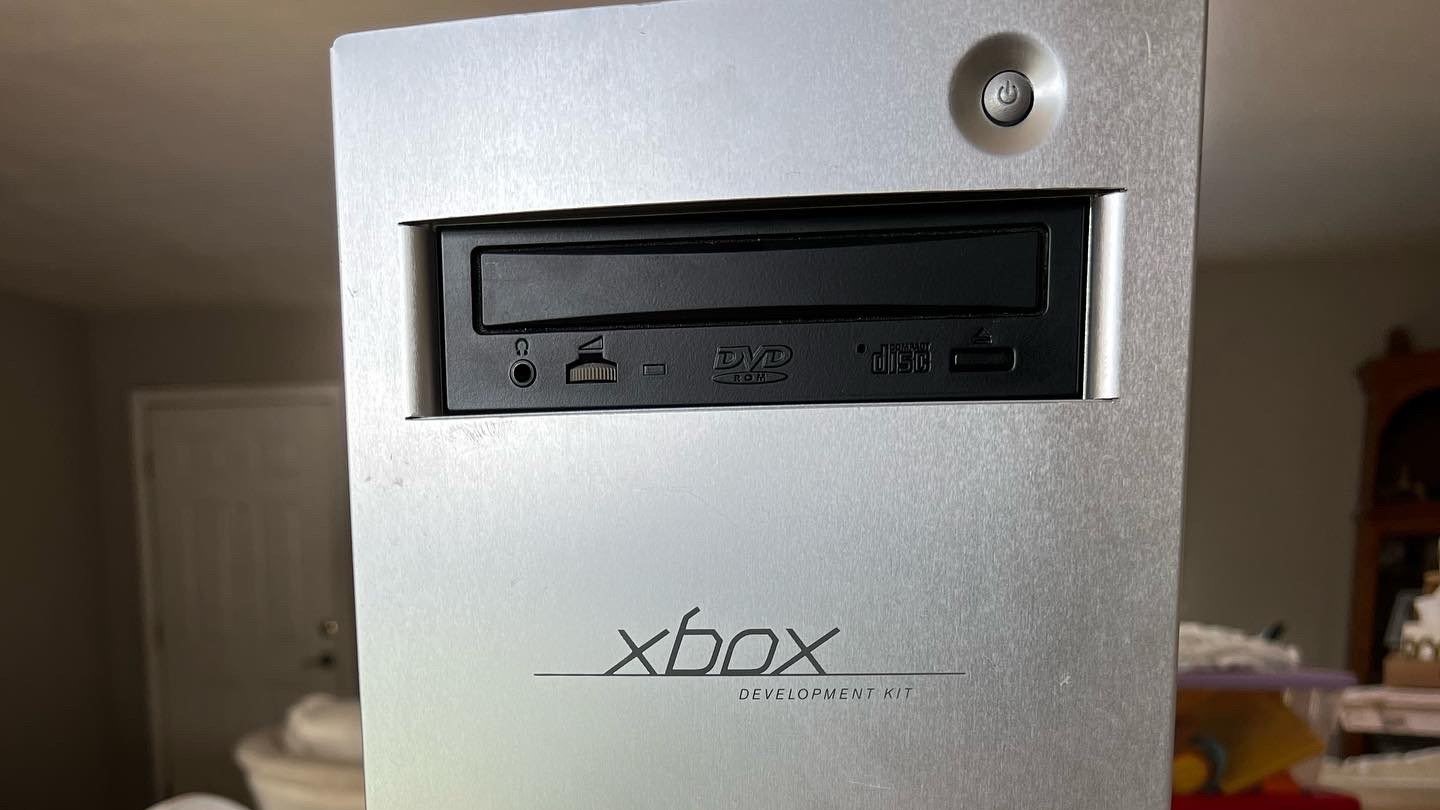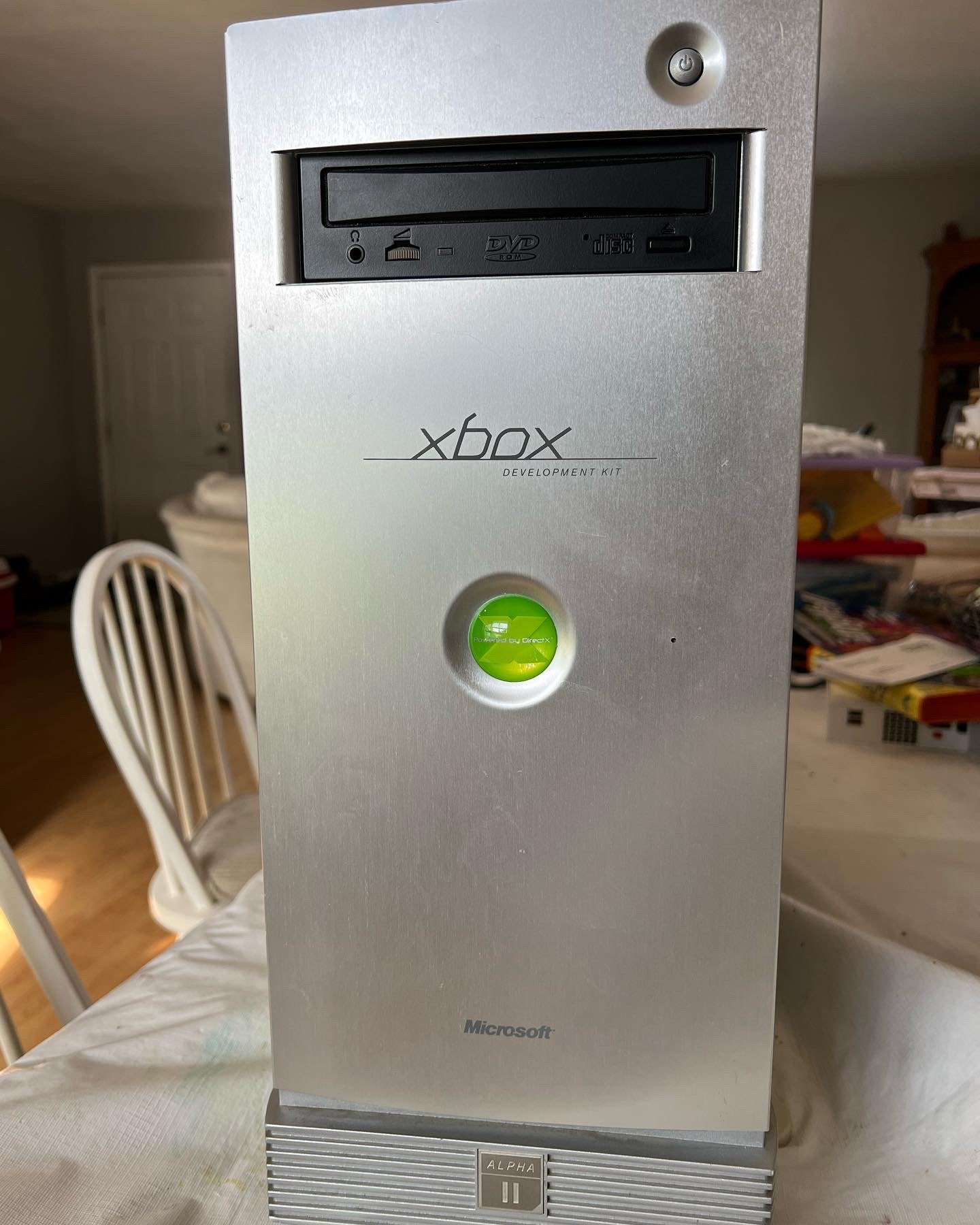'Father of the Xbox' shares the 1990s desktop PC aesthetic of its prototype devkit
The OG DirectXbox.

Seamus Blackley is now more often found posting photographs of the beautiful sourdough loaves he bakes, or his recent Quixotic quest to make chocolate from scratch. But Blackley's long and extremely distinguished career in tech will probably always be defined by his role at Microsoft in the late '90s and early '00s when, alongside others, he spearheaded the internal drive at Microsoft towards videogames, and specifically towards the Xbox.
I blew some minds (may be an exaggeration) in the PC Gamer Slack channel the other week by mentioning where the Xbox name originated: it was based on Microsoft's DirectX technology, and was therefore christened the DirectXbox then Xbox internally, the idea being that this was a working title and when launch came around the marketers would come up with something better. In fact, in Blackley's words, what the marketers came up with was "garbage." So Xbox it was.
I think there's always been something quite utilitarian about Xbox hardware designs and, as the name suggests, the people behind this thing always knew that the point was to make a standardised PC spec in a box. The recent Series S and X are good examples of this approach to hardware aesthetics, and have lent themselves to a minor social media trend of folk building an outer chassis that makes their Xbox look like one of those classic beige box PCs from the '90s.
Blackley saw one of these posts, and it sparked him to share a pretty remarkable picture: the original prototype Xbox devkits which look, well, exactly like that.
"People who are unaware that this looks a lot like the prototype Xbox devkits will not understand why I just aspirated my coffee," wrote Blackley. "Here’s what they looked like:"

If you ask me, that's a step up from the infamous silver 'X' prototype shown off at CES, and the millennium vibes are strong with this one. The eagle-eyed will also notice that the case is marked "Alpha II" at the bottom, suggesting there's an even earlier model. Even more beige? Only Blackley knows.
Blackley is tremendously good value in an interview, and spoke to Edge magazine several years ago about the process of getting the Xbox project over the line in Redmond. Part of which was hoodwinking the boss.
Keep up to date with the most important stories and the best deals, as picked by the PC Gamer team.
"We absolutely, intentionally hoodwinked [Bill Gates]," said Blackley. "And I absolutely, explicitly in writing to him many times said that we were doing that at the time. You know, it's a big risk. If it's successful, he's going to be happy, and if not, then not as happy. But look, the reality is that, again, you need to remember that this is a company that doesn't understand games, let alone consoles. This is a company whose entire worth is based on this Windows operating system—they see the value of a computer as the operating system. OK, now, if you're an internal employee at that company and you want to pitch the value of a new platform, what argument do you use? You use the operating system.
"Now that doesn't mean that, as they think more about it as the project progresses, they don't come to understand it's not true, which is what happened. Windows was really not the value proposition on this any more. They had thought that before: 'Oh, we should make a Windows gaming platform–Windows will offer all these values...' Which is garbage, right? It's garbage, it is not true. No gamer gives a fuck about Windows features. But for the guys in Redmond, it was true. And you're not going to convince them. I mean, have you tried convincing your grandfather of something?"

Rich is a games journalist with 15 years' experience, beginning his career on Edge magazine before working for a wide range of outlets, including Ars Technica, Eurogamer, GamesRadar+, Gamespot, the Guardian, IGN, the New Statesman, Polygon, and Vice. He was the editor of Kotaku UK, the UK arm of Kotaku, for three years before joining PC Gamer. He is the author of a Brief History of Video Games, a full history of the medium, which the Midwest Book Review described as "[a] must-read for serious minded game historians and curious video game connoisseurs alike."

